Podcast (plenty): Play in new window | Download
Subscribe: RSS
Hey food enthusiasts! In this episode of Plenty, number 15 to be precise, we hear once again from Chef Brian Alberg, a nearly ubiquitous culinary presence in the Berkshires and beyond. Since it’s been quite a while since catching up with him last, we had a lot of ground to cover.
The new Seeds Market Cafe at Hancock Shaker Village operates under his direction, and is fast-becoming a favorite eatery in its own right. The Tap House at Shaker Mill is well under way, after it’s former incarnation, the Shaker Mill Tavern, was brought under the umbrella of Main Street Hospitality, where Alberg is Vice President of Culinary Development. And early August of 2019 finds Berkshire’s best-known chef and local food advocate teaching an intimate workshop that ends with a dining experience that couldn’t get any fresher. Let’s go to that conversation now, here on Plenty.
GG — I guess we should start with your work at the Hancock shaker village. You’ve got a couple of different things going on there. First, you’ve got the the bistro, Seeds, up and running, correct?
Chef Brian — It’s a great little museum cafe. It’s open primarily during the days, but we do a lot of culinary programming around the village and around food related topics. It’s a place where we try to use as much from the actual onsite farm as possible in our menus, as well as other neighborhood farms, keeping in context with with the shakers were about and also what we are about, as chefs.
GG — Tell us a little bit about the history of your history. Anyway, going back a couple of decades. With the local food movement here in the Berkshires?
Chef Brian — I grew up in Columbia County, just over the border in New York State, and I worked for a classical French chef named Jean Morel, who had gardens out back and — this is like the mid to late ‘80s, and, you know, farm to table wasn’t really a thing back then. Although, growing up in the kitchen, as I did, farm to table was, like, you know, get what you can from your backyard, what you can from the guy down the street, and that just kind of played in my mind throughout my career.
Chef Brian — Once I relocated back to the Berkshires — I started back in ’04, for at the Red Lion Inn — for the biggest part of my life here, but I just got involved with Ted Thompson and a whole bunch of other people that were growing and trying to keep our landscape green and build a better life for themselves, and give us better products in the kitchen. So it’s just always been something that I’ve been drawn to.
GG — Do you think that the agriculture we have locally in when I say local, you know, within 100 miles is being utilized? Well, or do you think that there’s some more room to bring farm to table to restaurants in the area?
Chef Brian — I think it’s being utilized. I think that there’s always room for growth. I think that farmers themselves could do a better job of finding the gaps in our seasons and in our growing products, so that not every farmers growing tomatoes or kale or, you know, whatever produce there is, because it kind of super-saturates the market. So I think that they would be doing themselves a favor by diversifying their crops.
GG — What what sorts of items are you using in Seeds? What kind of dishes you are you offering that that utilize these foods?
Chef Brian — Actually, we just started with tomatoes, tomato season. Strawberries are kind of over, but we’ve got tons of greens. Garlic scapes just ended, but there’s all sorts of things coming in — beans, peas… Peas are kind of winding down, but everything was late this year. So, typically we’d have peas being done in late June. Now they’re pushing through July, which is kind of interesting, but it made for kind of a poor spring season for us, but now now the crops are beautiful.
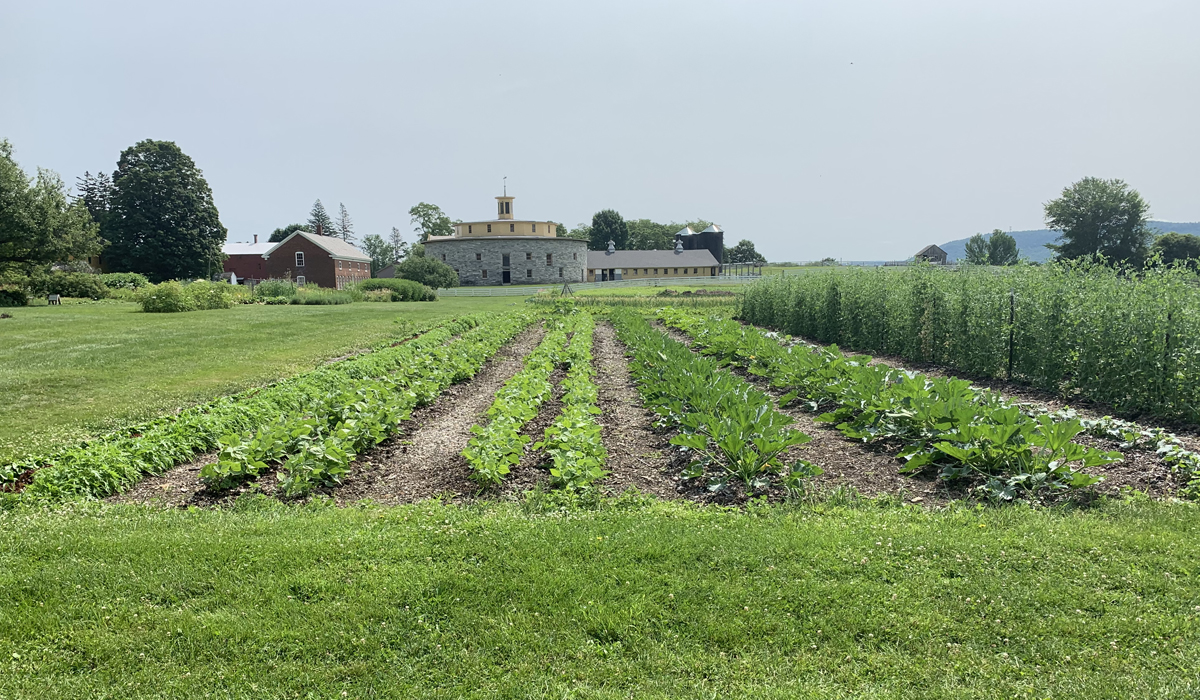
Chef Brian — I cook on these big cauldrons, and I set up kind of food truck style out in the field right out in front of barn, and we did some really fun food out there: brats, meatballs cooked over the fire, lobster salad. That was fun—it was good night.
GG — Of course, you’ve got other things going on at Hancock Shaker Village, like this “Eating the Landscape,” It’s a class that you’re offering next month?
Chef Brian — It’s basically just a class where people come — I think we have up to 20 people — and they tour the farm with me and one of the farmers. We pick produce out of the gardens, we talk about the meats that they raise, and then I’ll actually cook a dinner out at the table, from the stuff that we’ve picked. So it’s like a four hour class. It’s not really a class as much as it is a dialogue, kind of a working dialogue.
“Eat the Landscape” at Hancock Shaker Village
Where: Hancock Shaker Village
1843 West Housatonic Street
Pittsfield, Mass.
When: August 4 at 4:00 p.m.
Tickets $140 ($126 members)
Advance registration required by Wed., July 31
Contact: (413) 443-0188
GG — What sorts of people typically are interested in these classes? Are these people who are new to the experience of really getting their hands in the fields? Are they people who have been involved in food, but haven’t had the opportunity to hear from somebody like yourself?
Chef Brian — I think there’s two types. I think there’s the educational kind of searcher — somebody who wants to know more about it, learn more about it. I don’t know our full guest list yet, but I know that there’s a couple of people that have been involved in the local farming scene, not from a farming perspective, but from a participation perspective, that are attending. And then there’s people that just want to have a really cool, unique dinner out in the field.
GG — And this might be a lot of people’s best opportunity to have a one-on-one with you to sort of, you know, tap your brain for your food knowledge. What changes have you seen in what we’re eating locally in the last, say, 10 years or so? Do you find that we’re becoming better educated?
Chef Brian — I think so. I think for two reasons, I think, one for wellness, and two, because of the buzz about it. So you know, it’s a trend that’s not ending, so to speak. So I think that people care more about what they put in their bodies, so they eat more healthfully and more consciously. And then the other part is, you know, some people just want to do what everybody else is doing. And everybody’s eating like this—farm to table. And, when it really comes down to it, it’s the way it used to be back when our grandparents were around.
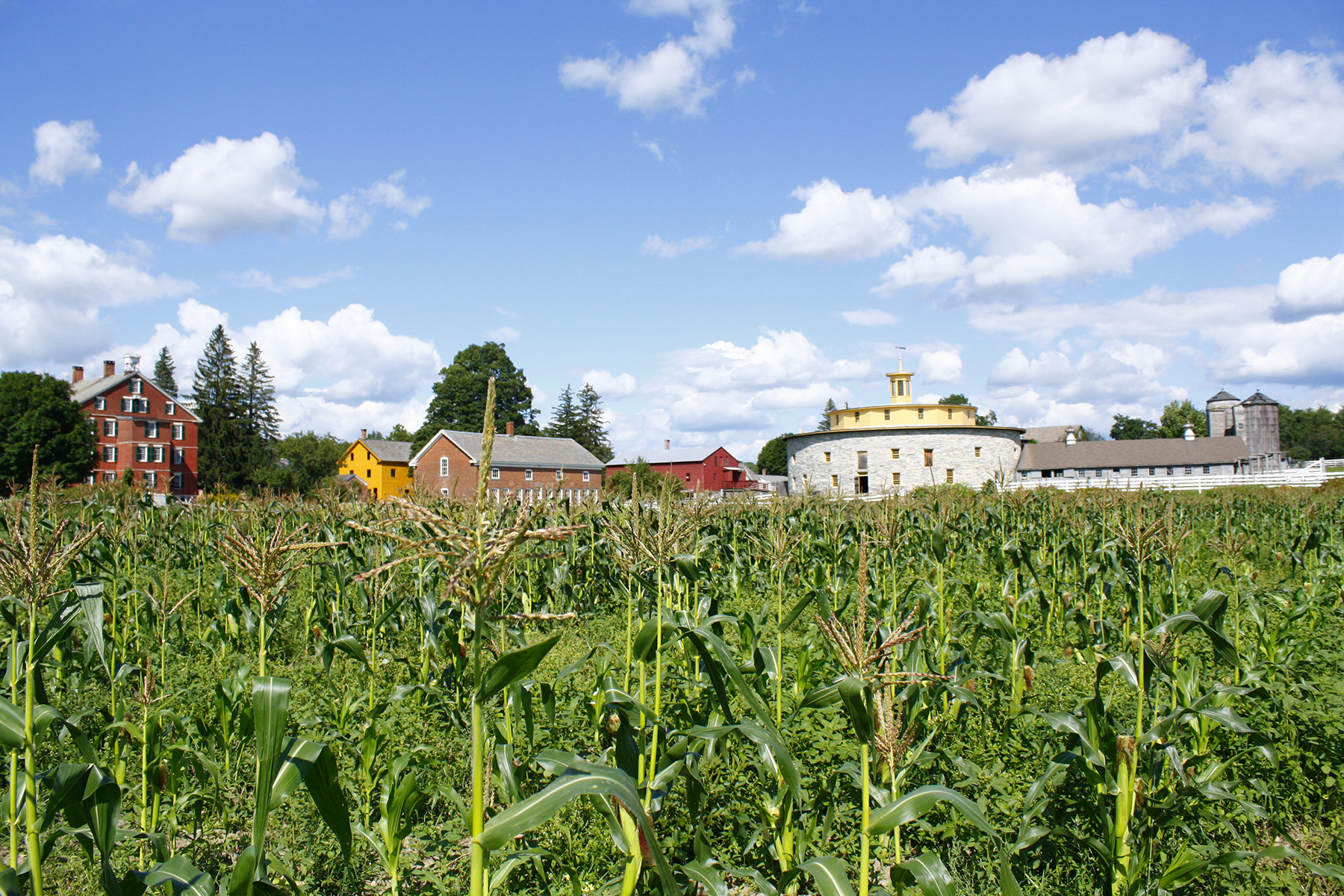
GG — I wanted to cover the new project that you’ve got going on in West Stockbridge [Mass.]. Tell us about The Tap House at Shaker Mill.
Chef Brian — The project started about six months ago, I guess, when we started looking at the property, and we opened June 1. It’s been a great, great month and a half. We took over the Shaker Mill Tavern — we took it over through Main Street Hospitality — and a small group of my employees, we all put a little skin in the game, and kind of got something to make it our own, and be part of the West Stockbridge community, which I’ve always loved. I’ve always loved driving by the Shaker Mill Tavern on my way to or from work, and just admiring it. I thought it had a great presence to the entrance of town. On my way home, I’d stop and have a beer and a burger at the bar. I always loved it. I love the feel of it. So when it came available, we wanted to be thoughtful and mindful of the locals that have been going there for years.
GG — Yeah, [local eateries] can’t all be fine dining, and they can’t all break the bank. There has to be a place for your working man and working woman to go and have that burger and a beer.
Chef Brian — I didn’t want to change too much. I just wanted to kind of break it up a little bit, give it a little bit of freshness, and kind of play off of what all my predecessors have done there. So it’s a restaurant and a bar that’s not trying to be anything special — we just want to be ourselves. We want to be there for the community. And it’s been really kind of a fulfilling month and a half. My staff loves it. We love it. I think that most of our customers love it.
GG — The other thing I wanted to talk about, just very briefly, is a subject that I’m going to be exploring on this show going into the future. About a decade or so ago, the combined villages of Shelburne Buckland, known as Shelburne Falls, did a study on whether or not the community was able to be self sustaining agriculturally if need be, which I thought was interesting, given that the climate crisis really wasn’t center stage as it is today. But that was one of the motivations. Do you think the Berkshires — given the amount of arable land that we have — do you think that the Berkshires is self-sustainable agriculturally?
Chef Brian — By necessity or by want? Because I think there’s a big difference. I mean, it’s all relative based on the number of people you have to feed. You know, we’re never going to be able to eat — you’d have to totally change your diet and the way you think about food and the way you think about eating. I mean, you’d have to, you’d have to root cellar, you’d have to… there’s just so many things that come into play. I think that because of who we are as a country, we’ve gone past that. And I don’t think that any one small community could be self sustaining without outreach. And so it’s such a big argument. I mean, one of my best friends is a large scale dairy farmer, which, all of my other best friends that are small agriculture farmers, they’re totally dead against. And yet, there’s a place for that farmer, and there’s a need for that farmer. So I don’t know — I’m kind of torn.
GG — We’ve got we got a lot of points of contact for Chef Brian Ahlberg — Seeds cafe a Hancock Shaker Village. Do you need reservations, or can you walk in there?
Chef Brian — No, no, no, we don’t we don’t take reservations actually at either property.
GG — Oh, good. So Seeds at Hancock Shaker Village, and on August 4, the
“Eat the Landscape” class / workshop where chef Brian Ahlberg guides you through the picking and cooking. And then The Tap House at Shaker Mill in West Stockbridge. We’ll link to all of these in the show notes.
GG — I want to say thank you so much for talking with Plenty it’s you’ve been generous with your time and knowledge.
Chef Brian — My pleasure.




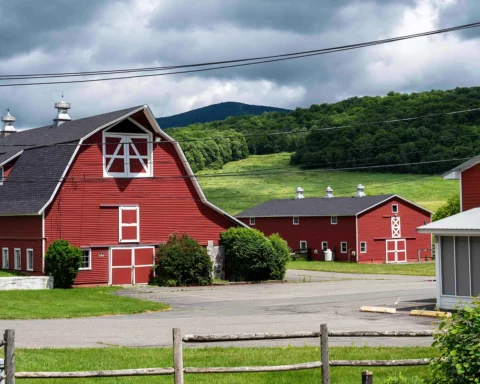
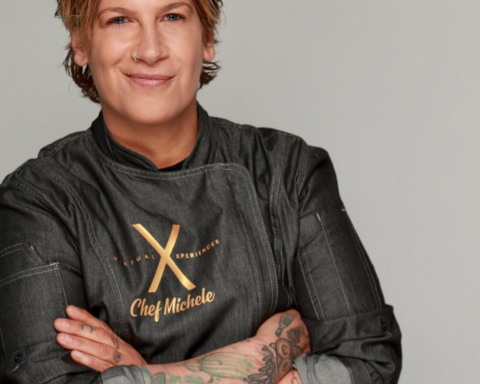
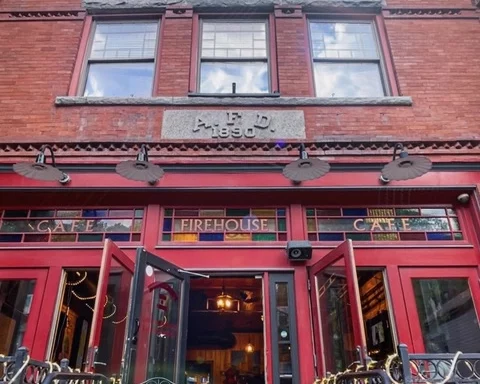
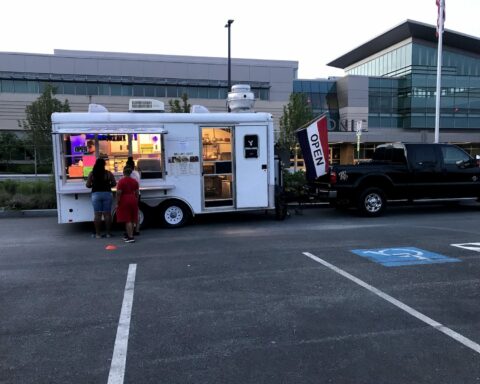
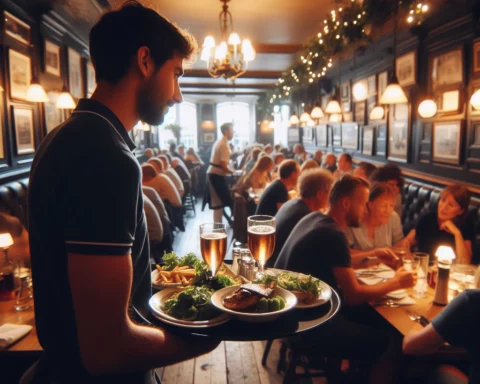









You must be logged in to post a comment.